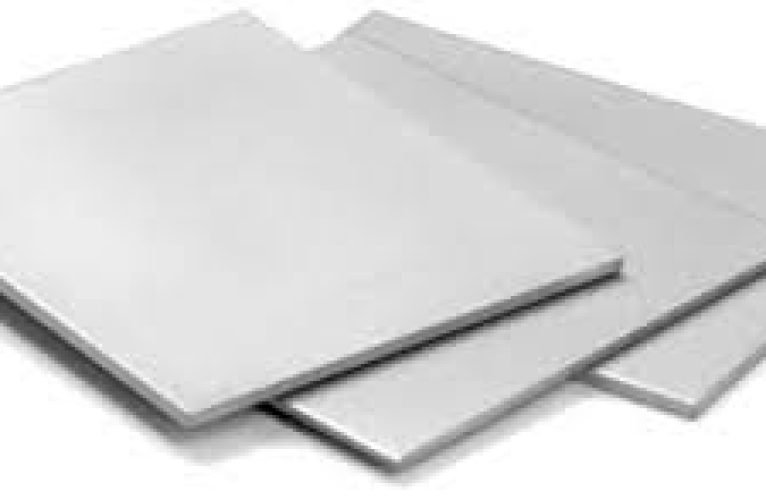What are the most common grades of aluminium sheets used in industries?


Aluminium sheets are among the most versatile materials used across various industries due to their light weight, durability, corrosion resistance, and excellent formability. From construction and transportation to aerospace and packaging, aluminium sheets play a vital role in shaping modern industrial applications. When you look for quality materials like aluminium sheet Singapore suppliers, you’ll find that different grades of aluminium sheets are available, each designed for specific applications. Understanding these grades helps manufacturers, contractors, and engineers select the right material for their projects.
In this article, we’ll explore the most common grades of aluminium sheets used in industries, their properties, and how they compare to alternatives such as Stainless Steel Singapore materials.
Aluminium 1100 is one of the purest grades of aluminium, containing 99% aluminium content. It is soft, ductile, and highly resistant to corrosion, making it ideal for applications where high formability is required.
Industries often use Aluminium 1100 for products like chemical equipment, reflectors, decorative items, and food processing containers. Because it has excellent thermal and electrical conductivity, it is also used in electrical and heat exchange applications.
For clients sourcing aluminium sheet Singapore suppliers, Aluminium 1100 is often recommended for projects that demand a clean finish, easy workability, and resistance to atmospheric corrosion.
Aluminium 3003 is one of the most widely used grades due to its perfect balance of strength, corrosion resistance, and affordability. It is an alloy that contains manganese, which enhances its mechanical strength by about 20% compared to 1100 grade.
This grade is extremely popular in industries manufacturing cooking utensils, storage tanks, roofing sheets, and automotive panels. Because of its good formability and weldability, Aluminium 3003 is a favorite among builders and industrial fabricators who often work with both aluminium sheet Singapore and Stainless Steel Singapore materials for mixed metal structures.
Another notable advantage of 3003 aluminium is its resistance to oxidation, which makes it suitable for humid and marine environments commonly found in Singapore.
When corrosion resistance is a top priority, Aluminium 5052 is the go-to choice. It contains magnesium as its main alloying element, giving it exceptional resistance to saltwater and chemical environments.
This makes 5052 aluminium sheets perfect for marine, transportation, and chemical processing industries. It is often used in boat hulls, fuel tanks, pressure vessels, and marine structures.
Compared to Stainless Steel Singapore materials, Aluminium 5052 is lighter yet still strong enough to withstand heavy-duty industrial use. Its flexibility and ability to maintain its strength even after forming or bending make it ideal for projects that require precision fabrication.
Aluminium 6061 is perhaps the most recognized and widely used structural alloy across industries. It contains magnesium and silicon, offering excellent mechanical strength, good corrosion resistance, and outstanding weldability.
6061 is extensively used in the aerospace, automotive, and construction sectors. It’s also found in bicycle frames, pipelines, and architectural structures. Many aluminium sheet Singapore suppliers recommend this grade for projects that need both structural integrity and aesthetic appeal.
In terms of performance, Aluminium 6061 competes closely with Stainless Steel Singapore in certain applications. While stainless steel offers superior hardness and temperature resistance, 6061 aluminium provides a better strength-to-weight ratio, making it a preferred choice for lightweight designs.
Aluminium 7075 is known for its incredible strength and toughness, often compared to steel. It contains zinc as its primary alloying element and is commonly used in aerospace, military, and high-performance sporting equipment.
Despite its strength, 7075 is lightweight, corrosion-resistant, and has good fatigue strength, making it suitable for applications where both power and precision are essential.
Although 7075 aluminium sheets are more expensive than other grades, industries that prioritize high strength-to-weight performance — such as aviation or defense — find them invaluable. In contrast, Stainless Steel Singapore materials are heavier but offer better heat resistance for industrial equipment exposed to extreme temperatures.
Aluminium 2024 is another aerospace-grade alloy known for its excellent fatigue resistance and high strength. It contains copper as its primary alloying element, which gives it superior toughness but slightly reduces corrosion resistance compared to 5052 or 6061.
This alloy is used in aircraft structures, automotive frames, and precision tools where weight reduction is crucial. When properly coated or anodized, Aluminium 2024 performs exceptionally well in demanding environments.
For industrial users seeking aluminium sheet Singapore suppliers, 2024 grade is a premium choice for applications that require strength under stress, making it a popular alternative to heavier metals like stainless steel.
While aluminium and stainless steel both have strong industrial demand, they serve different purposes based on their properties. Stainless Steel Singapore materials are known for superior hardness, heat resistance, and durability, making them suitable for high-temperature or heavy-load applications such as kitchenware, construction, and machinery.
On the other hand, aluminium sheets offer a better weight advantage, corrosion resistance, and cost-effectiveness. Aluminium sheet Singapore suppliers provide a range of grades to cater to specific needs — from flexible and soft alloys for forming to high-strength alloys for structural applications.
Industries that require lightweight solutions, such as transportation, prefer aluminium sheets, whereas sectors needing longevity and strength under extreme conditions often opt for stainless steel.
The industrial world relies heavily on the right material selection, and understanding the most common grades of aluminium sheets is crucial for efficient and durable results. Grades like 1100, 3003, 5052, 6061, 7075, and 2024 each offer unique advantages that cater to diverse needs — from flexibility and corrosion resistance to high strength and precision.
tags: aluminium sheet Singapore
When boutiques, online sellers, and retailers place large apparel orders, delivery time becomes just as...
When it comes to getting documents notarized, convenience and reliability matter. That’s where mobile notary services come...
Use of nutrient-dense juices and artfully made smoothies can keep husbandry recipes light on stomachs...